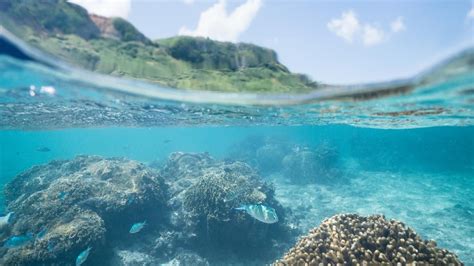Ocean Health and Ecosystems
co-chair : Grace Saba
co-chair : Oscar Schofield
OceanGliders Ocean Health & Ecosystems Task Team
Description:
The ocean regulates Earth’s climate and provides oxygen, food, jobs, transportation, medicine, minerals, and recreation. As such the ocean is considered one of Earth’s most valuable resources. But the ocean is changing, and those changes are increasingly threatening living marine resources and those who depend on them. Waters are warming, becoming more acidic and less oxygenated. Harmful algal blooms (HABs) increasingly wreak ecological havoc and cause economic loss. Waters are rising and inundating our coastal communities. Therefore, it is of utmost importance that ocean health and ecosystems are closely monitored in coastal zones and the open ocean. Physical, chemical and biological information improves understanding of ecosystem response to environmental stressors (e.g., low dissolved oxygen, ocean acidification), aids regional ecosystem management, and provides ocean health monitoring indicators that could be used for early warning of environmental stress or pollution. We need these connections to develop the predictability of ecosystem services to potential disturbance and change.
Autonomous underwater gliders have proven to be a transformative technology that achieves the spatial, temporal, and depth resolution that far exceeds that of traditional sampling from ships and moorings. Standard sensors measuring pressure, temperature, salinity, and currents are now accompanied by additional sensors focused on key chemical variables including dissolved oxygen, pH (ocean acidification), and nitrate and biological variables including phytoplankton biomass, presence of harmful algal blooms, and zooplankton and fish biomass, abundance, and composition (acoustics). With ongoing development of a diverse profile of glider sensors (i.e., genetics/eDNA, pigment, suspended particulate matter collection systems, flow cytometry, quantitative imaging systems, bio-optical), researchers will continue to utilize these technologies to provide a wealth of information on ocean health and ecosystems. This includes examining the variability, change, and environmental stress in coastal habitats of important living marine resources and identifying mechanistic processes that drive upper level trophic dynamics.
The Ocean Health and Ecosystems Task Team (TT) under the umbrella of OceanGliders, a component of the integrated Global Ocean Observing System (GOOS; (https://doi.org/10.3389/fmars.2019.00422), is charged with developing regional and global networks to provide baseline ocean observation to address such issues as climate variability, water quality, and ecosystem dynamics. The TT will coordinate these activities internationally to build collaborations that optimize opportunities for new and sustained observations. In building these regional and global networks, the TT will determine what science questions can be asked and what experiments can be done as a community as well as what sensors or sensor suites do we need to scale up to ecosystem-level issues. Through these efforts, we will gain a global perspective of current and projected ocean health and ecosystem dynamics.
Scope:
The Ocean Health & Ecosystems TT will coordinate with other OceanGliders task teams (Data Management, Boundary Currents, Storms, Water Transformation, Best Practices) to jointly work toward a mature sustained global glider observing network by 2030. This integration, across scales, from the coast to the open ocean, and from physics to biology, will support regional, sustained operational deployment of gliders serving the present societal needs and will enhance the GOOS.
